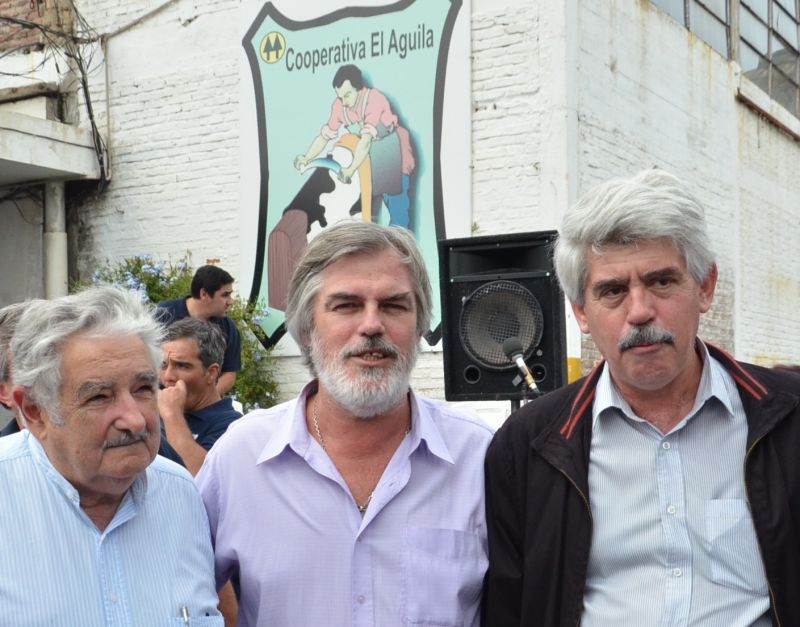
As part of a journey to Europe and China, the President of Uruguay, José Mujica, visited the Mondragon Corporation in Spain. Mr Mujica, who gives away 90 per cent of his pay, has developed a series of programmes that aim to boost co-operative development in Uruguay.
While in Spain, he met with the President of Mondragon’s Board, Txema Gisasola, exchanging ideas and experiences on co-operative education and training.
Mr Mujica was particularly interested in how Mondragon University works. As a not-for-profit co-operative, the University grants equal opportunities to students of all economic background. According to INACOOP, he hopes to achieve the same results in Uruguay with the Technical University of Uruguay.
On this occasion, Mondragon Corporation has also signed an agreement with the Uruguayan Ministry of Industry, Energy and Mining, in order to further co-operation between the two, particularly in terms of co-operative training.
This initiative is part of a more complex set of policies developed by the Uruguayan government to support co-operative development.
In 2011 the government created a Development Fund (FONDES) that provides long-term loans to sustainable enterprises, many of these being co-operatives.
FONDES is particularly aimed at helping co-operatives and worker owned enterprises to gain access to capital. So far, 19 co-operatives have benefited from financial loans through FONDES.
“For INACOOP, the Development Fund as an important strategic partner,” said Fernando Berasain, the president of the National Co-operative Institute of Uruguay (INACOOP).
He added that in the majority of cases workers taking over the factory were the ones operating the machines and they required special training to be able to run the factory. With the help of INACOOP, they were introduced to co-operative values and principles.
Mr Berasain, who accompanied the President on his visit to Mondragon, said the United Nations International Year of Co-operatives had helped to raise the profile of co-operatives. From a political perspective, the IYC has helped to strengthen the relationship between the government and INACOOP, said Mr Berasain. INACOOP co-hosted a ministerial roundtable that gathered representatives from all industries as well as education. As a result, co-operation is now taught in schools.
Co-operatives will play an even more important role in the future, in Mr Berasain's view. Uruguay has a strong co-operative movement, he says, with more than 1,200 co-operatives across various sectors, from agriculture to banking, retail or housing.
“The history of the country goes hand in hand with the history of co-operation,” said Mr Berasain, explaining that the first co-operatives were created 110 years ago.
Photo: (left to right) President of Uruguay, Jose Mujica, President of INACOOP, Fernando Berasain, and Minister of Labour, Eduardo Brenta, at the anniversary of El Aguila Co-operative.




